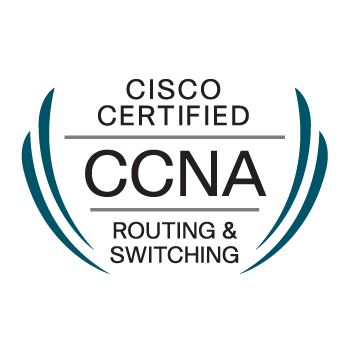Turn on suggestions
Auto-suggest helps you quickly narrow down your search results by suggesting possible matches as you type.
Showing results for
- Cisco Community
- Technology and Support
- Networking
- SD-WAN and Cloud Networking
- What is Root Certificate and ID_Certificate in Viptela SDWAN?
Options
- Subscribe to RSS Feed
- Mark Topic as New
- Mark Topic as Read
- Float this Topic for Current User
- Bookmark
- Subscribe
- Mute
- Printer Friendly Page
598
Views
0
Helpful
1
Replies
What is Root Certificate and ID_Certificate in Viptela SDWAN?
Options
- Mark as New
- Bookmark
- Subscribe
- Mute
- Subscribe to RSS Feed
- Permalink
- Report Inappropriate Content
08-29-2022 09:18 AM
What is Root Certificate and ID_Certificate in Viptela SDWAN?
Labels:
1 Reply 1
Options
- Mark as New
- Bookmark
- Subscribe
- Mute
- Subscribe to RSS Feed
- Permalink
- Report Inappropriate Content
08-29-2022 09:56 AM
hi knaik99 -
In Cisco SDWAN solution, authentication between devices involves validating identify via certificates.
Controller identity is provided by a Symantec/Digicert or Cisco-signed certificate, or alternatively, an Enterprise CA certificate. Each controller in the network must have a certificate signed and installed. In addition, the root certificate chain for the corresponding CA must also be installed for each controller before the controller certificates can be installed.
Additional root chains are installed in order to validate the device certificate of devices that do not use the same CA root. Some root certificate chains are pre-loaded or automatically installed, and others, like the Enterprise root CA, must be installed by an administrator
Identity for vEdge hardware routers is provided by a device certificate signed by Avnet, generated during the manufacturing process and burned into the Trusted Platform Module (TPM) chip. The Symantec/Digicert and Cisco root certificates are pre-loaded in software for trust for the controllers’ certificates. Additional root certificates may either be loaded manually, distributed automatically by vManage, or installed during the ZTP automatic provisioning process.
Identity for IOS XE SD-WAN hardware routers, with the exception of the ASR 1002-X, is provided by the Secure Unique Device Identifier (SUDI), which is an X.509v3 certificate associated with a key pair that is protected in hardware. The Symantec/Digicert and Cisco root certificates are pre-loaded in software for trust for the controllers’ certificates. Additional root certificates may either be loaded manually, distributed automatically by the vManage NMS, or installed during the Plug-and-Play (PnP) automatic provisioning process.
vEdge cloud routers, ISRv routers, CSR1000v routers, and Cisco ASR 1002-X routers do not have device certificates pre-installed. Each device uses a One Time Password (OTP)/Token that is generated by vManage and configured during device deployment for the purpose of a temporary identity. Once the device is temporarily authenticated, a permanent identity is provided by vManage, which can operate as a Certificate Authority (CA) to generate and install certificates for these devices.
HTH.
In Cisco SDWAN solution, authentication between devices involves validating identify via certificates.
Controller identity is provided by a Symantec/Digicert or Cisco-signed certificate, or alternatively, an Enterprise CA certificate. Each controller in the network must have a certificate signed and installed. In addition, the root certificate chain for the corresponding CA must also be installed for each controller before the controller certificates can be installed.
Additional root chains are installed in order to validate the device certificate of devices that do not use the same CA root. Some root certificate chains are pre-loaded or automatically installed, and others, like the Enterprise root CA, must be installed by an administrator
Identity for vEdge hardware routers is provided by a device certificate signed by Avnet, generated during the manufacturing process and burned into the Trusted Platform Module (TPM) chip. The Symantec/Digicert and Cisco root certificates are pre-loaded in software for trust for the controllers’ certificates. Additional root certificates may either be loaded manually, distributed automatically by vManage, or installed during the ZTP automatic provisioning process.
Identity for IOS XE SD-WAN hardware routers, with the exception of the ASR 1002-X, is provided by the Secure Unique Device Identifier (SUDI), which is an X.509v3 certificate associated with a key pair that is protected in hardware. The Symantec/Digicert and Cisco root certificates are pre-loaded in software for trust for the controllers’ certificates. Additional root certificates may either be loaded manually, distributed automatically by the vManage NMS, or installed during the Plug-and-Play (PnP) automatic provisioning process.
vEdge cloud routers, ISRv routers, CSR1000v routers, and Cisco ASR 1002-X routers do not have device certificates pre-installed. Each device uses a One Time Password (OTP)/Token that is generated by vManage and configured during device deployment for the purpose of a temporary identity. Once the device is temporarily authenticated, a permanent identity is provided by vManage, which can operate as a Certificate Authority (CA) to generate and install certificates for these devices.
HTH.
Learn, share, save
Discover and save your favorite ideas. Come back to expert answers, step-by-step guides, recent topics, and more.
New here? Get started with these tips. How to use Community New member guide
Customers Also Viewed These Support Documents



